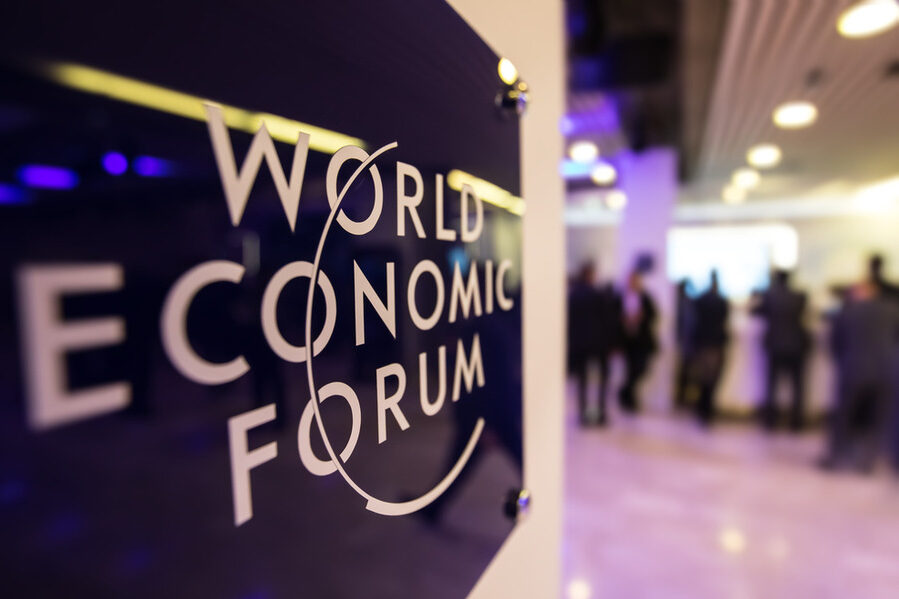Under the theme ‘History at a turning point,’ the activities of the World Economic Forum (WEF – Davos) concluded in government policies and business strategies. The meeting took place at a critical juncture in world history, amid global inflation, a shortage of supply chains, and a looming food crisis.
Read more: Davos: Saudi transformation ‘a beacon of optimism’
Experts believe that implementing the recommendations of this year’s meeting is crucial in order to exit the crisis with minimal losses.
The Saudi participation was remarkable, with ministers from the finance, foreign affairs, industry, and technology in attendance, bringing portfolios of massive accomplishments made in the first five years since the launch of the Saudi Vision 2030.
Al Jadaan
An effective balance between innovation and government oversight is essential to ensure society’s desire for new financial products and services doesn’t come at the cost of financial stability. That was the message from Mohammed bin Abdullah Al Jadaan, Saudi Arabia’s Minister of Finance, on the second morning of the World Economic Forum’s 2023 Annual Meeting in Davos.
Al Jadaan underlined that frameworks are essential to ensure individuals, businesses, and even entire societies aren’t compromised by unregulated systems such as cryptocurrency or so-called “shadow banking”.
“Obviously, we need a space for innovators, and they are introducing new ways of doing business that conventional financial institutions need to deal with to make sure that they are not left behind – and often they are innovating under pressure. But at the same time, regulators need to be cautious. So there needs to be this dialogue between the two sides,” he said.
Prince Faisal bin Farhan Al Saud
For his part, Prince Faisal bin Farhan Al Saud, Minister of Foreign Affairs for the Kingdom, said that despite a challenging global economic outlook in 2023, Saudi Arabia is demonstrating economic growth can still be achieved through bold reforms, regional cooperation, and dialogue.
Prince Faisal emphasized at WEF the importance of stability to the global geoeconomic picture, especially in the world’s energy markets.
He further highlighted that committing to a clean energy future while ensuring a level of predictability in the supply of traditional sources of energy until those sources are fully developed, noting that geopolitical stability is “absolutely key” to energy security.
“The Kingdom is investing almost $200 billion in renewable energy at home and abroad. Our companies are active in 21 countries, deploying solar and wind energy and other sorts of renewable energy.
“But in the meantime, we need to maintain a supply of traditional energies that are priced in a way that ensures stability – and we will continue to address this in a responsible way.”
AlKhorayef
Saudi Arabia’s new National Industrial Strategy will unlock important investment and employment opportunities in the Kingdom, and transform the economy into a global manufacturing hub, Bandar bin Ibrahim Alkhorayef, Saudi’s Minister of Industry and Mineral Resources, highlighted at the WEF.
AlKhorayef addressed the key challenges and opportunities facing the industrial sector in the years ahead, describing how the National Industrial Strategy, launched by Saudi Arabia in October 2022 to increase the industrial exports value to 557 billion riyals ($148 billion) by 2030, will add appeal to global investors and add value to the economy.
“The Industrial Strategy has high targets, from manufacturing’s contribution to GDP to the jobs it will create,” he explained to the audience. “It will take today’s industrial base to the next level, where will we see greater complexity and more advanced products while enabling us to utilize the natural products we have – oil and gas, or minerals.”
Innovations in advanced manufacturing including AI and 3D printing will enable the Kingdom to create the right jobs for the future, the Minister said, in line with Saudi Vision 2030’s aim to diversify the national economy.
An example shared was Saudi Arabia’s aim to transform 4,000 factories into automated “factories of the future”, and that its collaboration with the World Economic Forum was beneficial to helping the Kingdom’s industrial sector to realize this.
Abdullah Alswaha
Furthermore, the Saudi Minister of Communications & Information Technology Abdullah bin Amer Alswaha highlighted at the event the current digital world is not fit for purpose in the 21st century.
The Minister shared examples of the Kingdom’s adoption of the metaverse through collaborations with leading innovators.
“The Kingdom celebrates with Ericsson Healthcare one of the fast 5G deployments Saudi Arabia today ranks number 1 in terms of spectrum allocated to industrial 5G, and subsequently the metaverse, which is important for offering the latency required for metaverse use cases,” he said.
For more economic news, click here








